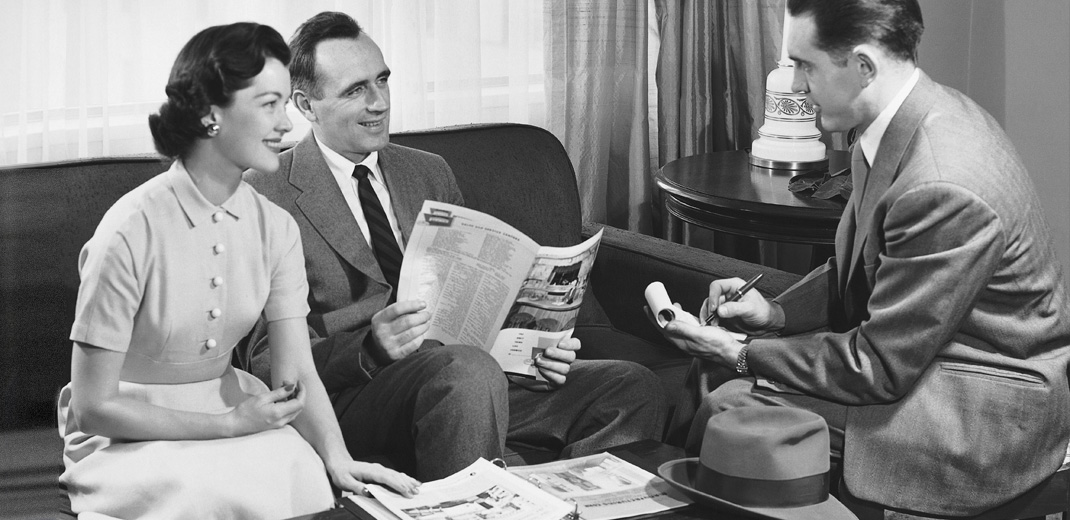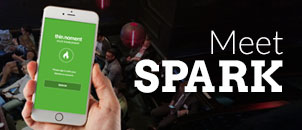It doesn’t matter what you call it, storytelling is at the center of content marketing.
Content marketing, brand journalism, marketing communications, creative, there are so many labels being tossed around in relation to what content marketers do every day. So much so that Ike Pigott, a former television news journalist and current communications strategist for Alabama Power, wants to clear up the identity crisis. Yes, Alabama Power, the utility company. The label, Ike says, is based on who it is that’s trying to sell you something.
I caught up with Ike recently to define and clarify, so we as content marketers can gain some degree of clarity. We also talked about how an industry assumed to be boring and mundane can, in fact, engage an audience, inform a customer base and have vibrant, successful content.
Pigott is a gem of a thinker and can be found online on Twitter and Facebook. And, he occasionally blogs for Occam’s Razr.
Video Transcript
Jason Falls: Welcome to Thismoment in Content Marketing from our friends at Thismoment.com, where we talk to the movers and shakers, cookers and bakers in the content marketing world, who’s creating compelling content, how, why, and what are the outcomes.
I’m your host, Jason Falls, and today we have another treat of a guest, Ike Pigott, who is not only a fine content marketing, digital marketing, and social media speaker, writer, and influencer, but has a double dose of credibility on top of that. Not only was he a television news journalist for many years — in fact, I first met Ike Pigott as a viewer of ABC 3340 in Birmingham, Alabama, when I lived there many moons ago — but he’s also a communications strategist for Alabama Power. So there’s all sorts of goodness there, regulated industry, utility, absence of sizzle, especially if they’re being safe. Ha, ha. See got a nice little double entendre there for you. Welcome, Ike.
Ike Pigott: Glad to be here, Jason.
Jason Falls: Well, and I’m glad you are doing this from the atrium at Alabama Power. That’s a very sexy background and makes my home office look miniscule.
Ike Pigott: You just need better lighting. That’s all.
Jason Falls: I do. I do. And I look very yellow to most people because I have yellow walls, and the lamps that I have aren’t real beautiful. But that’s one of those technical things that our viewers probably don’t care about.
Ike Pigott: We’ll work on that later.
Jason Falls: Maybe we will.
Ike Pigott: What can I do for you, sir?
Jason Falls: Well, so you and I were talking offline, and I want to sort of get this identity crisis out of the way, because we here on this particular show talk about content marketing, but other people talk about brand journalism, and still other people talk about creative in the old sort of ad lingo sense of the word. You have a pretty definitive perspective on that. What the hell do we call this stuff?
Ike Pigott: Well, you left out brand publishing . . .
Jason Falls: Oh yeah.
Ike Pigott: . . . because that’s all getting out there too. And you’re going to see more and more terms come out because, eventually, some consultant or guru is going to figure out that if he can own the term, that he can market himself a little bit better. So you’re going to see a lot of slicing and dicing and a lot of delineation between what this is and what it isn’t.
We’re talking about a class of activities that are really the same at the core. It’s about using technology to tell your story. It’s about using technology to humanize your brand and focus on the people that you have working for you. Get it away from the logo. Get it to human faces. And ultimately, you want to educate your customers, because the more your customers know about what you do and about how you do it, the better off they’re going to be.
Jason Falls: Absolutely. So obviously, at Alabama Power you have the advantages of being on the brand side.
Ike Pigott: Mm-hmm.
Jason Falls: But you also have multiple divisions, multiple needs for using content internally, externally, so on and so forth. How do you approach content marketing inside a large organization like this, and who are all the people at the table?
Ike Pigott: We’re real fortunate. I happen to work for a company that is very, very conservative. It’s very, very safe. You can’t deliver electricity to people through wires without having an extreme focus on safety. And part of our corporate culture is that you make sure that everybody is in the loop. If you have a bunch of linemen stringing up new wire and whatever else, you don’t have somebody that just goes and says, “Well hey, let me just go ahead and plug this in here and see what happens.” You make sure that everybody up and down that circuit is on the same page and knows what’s hot and what’s not.
So when we started kicking around the idea of social media here at Alabama Power and then also at the parent company level, Southern Company, we wanted to make sure that we had everybody at the table. That was a really important piece, even if everybody wasn’t quite ready to dabble.
But what you have out of that is a lot of really good relationships where those of us on the corporate communications side know who to talk to in customer service, and they know who to talk to in HR, legal, and ethics and compliance and whatnot. That really creates a sense of total ownership where you realize you’re not just speaking for you. Yet at the same time, the marketing people can have their needs met. The PR people can have their needs met. You can share the channels and tell the stories that you need to tell. You just want to make sure that it meets the entire strategic needs of the organization.
Jason Falls: So you touched on telling the stories they need to tell, and I want to jump into storytelling because that’s really sort of at the core of content marketing or whatever the heck you want to call it. Certainly, our audience is going to be very interested in how an industry, a company like Alabama Power that’s a utility, that as long as the power is on and running, they don’t think of you. If the power goes off, they hate you. How do you tell stories in that environment and actually drive engagement with your audiences?
Ike Pigott: It’s a blessing, and it’s a curse. The curse is that, for about 60 years, our entire industry, the entire electric power industry did just a really poor job of telling its story. We kind of left it off with the Jetsons and Rosie the Robot and vacuums and how amazing electricity is and how it changes your life. If you go back to the days before rural electrification — I know that touches your roots. It touches my roots very well as well — it’s night and day difference in what it meant for people’s lives, and we kind of got away from that.
For about 60 years, we’ve kind of coasted along and allowed people to just assume that when they plug something into the wall, that it’s going to work and that there’s no magic to it anymore. As a result, you’re right. They don’t think about us. Then the moment the power goes out, they’re ranting and screaming, “What’s wrong with you guys?”
But the blessing is that that leaves us a lot of latitude. It’s a completely fertile plain where we can go in and tell the stories that we need to tell. I like to tell folks I work in a building with a bunch of people whose job it is every day to save our customers a nickel. We’ve got people who are watching the load. We’ve got people who are monitoring the temperature of the boilers to make sure that we’re reaching peak efficiency. We’ve got people riding the lines looking for an opportunity. We’ve got engineers who are doing very innovative things to figure out how to move power from here to here in a safer, more reliable, and more of a cost-effective way. And it’s happening every single day.
When you tell those stories, and you tell them using people in an authentic way, it makes a huge difference in how your customers perceive you. What a lot of people don’t realize is, for a power company, customer satisfaction and customer favorability is the most important number in the entire business, more so than fuel costs or capital investment or anything else. It’s how well the customers perceive you.
Jason Falls: So I would imagine that, obviously, when the customers are communicating with you or to you, it’s typically in a negative or a crisis situation. Correct me if I’m wrong, certainly. But also the gap between power outages, crisis situations, and natural disasters is a gap that I would imagine most people don’t necessarily want to hear from their utility company. Is that true, and how do you break through that clutter?
Ike Pigott: There are certain things that they want to hear from you. They want to know, even if they never take the first step towards an energy efficiency tip, they want to know that you’re looking out for them and you’re looking for ways to help them save a nickel.
You’re right. Those big, gigantic outage events, those big hurricanes and storms are few and far between. Ironically, we get more leeway from our customers with those when they can understand what’s happening than when, say, a thunderstorm blows through, a 45 mile an hour wind knocks over a tree. It still disrupts the power at your house, but it’s like, “Come on, man, that wasn’t a big storm.” It’s just kind of understanding your customer, understanding their expectations, and realizing where there’s a gap between what they expect from you and what you expect to deliver. If you can inform them and educate them about what’s going on in that gap, then you’re going to be better off.
Jason Falls: Very good.
Ike Pigott: Don’t freak out Jason. I’m going to pivot and try and get out of the sun.
Jason Falls: You’re seeing a lot of . . . the sun is definitely shining in Birmingham today.
Ike Pigott: Yes, it is. Yes, it is. Right in here.
Jason Falls: So you’ve strategically positioned yourself behind a column. That’s awesome.
Ike Pigott: That’s right.
Jason Falls: Good stuff. So I would imagine that . . . we’re recording this at the end of January in 2015, and there’s currently a big snowstorm that was expected to hit last night in the northeast United States. You guys are doing something pretty unique that opens up a huge opportunity for storytelling. Tell us about it.
Ike Pigott: Anytime there’s a big event, whether it’s a planned event, that a hurricane is coming in, or if it’s just sort of a surprise outbreak of tornadoes or whatever else, there’s actually a rather large mutual assistance network of utilities all the way up the eastern seaboard and all the way across to Oklahoma. We kind of sit in the center of it.
Jason Falls: Nice.
Ike Pigott: As a result, Alabama Power and other operating companies in Southern Company get called quite frequently to go out and help with storm assistance, because lord knows when it happens here, we need the help coming in too. These are really good opportunities for telling the story about the kind of conditions that our guys work in and what they do and how important it is.
As we’re talking right now, I’m waiting for an email that’s going to tell me how bad this is going to be. There are some really nice stories to be told, that not just benefit our customers and educating them about what are crews do, but it also kind of enhances the brand of Alabama Power across the rest of the country and really just kind of elevates the whole idea of the lineman as a hero as well. A lot of different stories to tell. You just have to be open to it.
The big thing is that the closer you are to your company and your industry, the harder it can be for you to identify what some of those stories are. Things that are normal, everyday to you might be really, really sexy to somebody on the outside if you just tell the story and sell it.
Jason Falls: That’s true, and I think I can speak for a lot of people watching this show that we probably undervalue the role of the frontline utility worker and the people who actually do their jobs to save us that nickel. So I guess it’s your job to remind us of that, and we thank you for doing that.
Anything else you want to share with us about how you approach things at Alabama Power.
Ike Pigott: I tell you it’s become a total team approach, and one of the nice things about . . . we talk about brand journalism and storytelling, and we don’t necessarily talk about it as social media, because it’s not, and it shouldn’t be. It’s its own thing. But the nice thing about the way our social media kind of evolved, at Albama, is that it really kind of opened the doors for us to talk across departments. So it’s made it easier for us internally to identify this content, identify these stories where they are, and tell more of these narratives. It makes a big difference.
Jason Falls: That’s awesome. Well, Ike, thanks so much for joining us today to tell us the story. I think we’re all going to sort of raise a glass to our utility workers today. This is awesome. Thanks, man.
Ike Pigott: Please do. Thank you,.
Jason Falls: We will. Thanks for joining us Ike, and thank you all, watchers and viewers, for joining us for another episode of Thismoment in Content Marketing. Check out other interviews and a pretty nifty content marketing platform that’s over at Thismoment.com. That’s all for now. We’ll see you next time.









